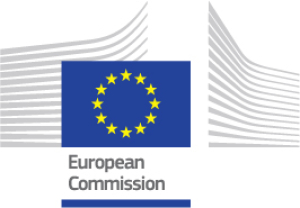Europe and the people: Examining the EU's democratic legitimacy- Edinburgh Conference
A short conference in Edinburgh looking at the EU's democratic legitimacy in the context of the current UK referendum debate and discussion across Europe about the accountability, transparency and democratic basis of the EU.
Speakers include:
• Alyn Smith MEP, SNP Member of the European Parliament
• Lewis MacDonald MSP, Labour Shadow Cabinet
• Jim Sillars, ScotLeave.eu
• Ross Thomson MSP, Scottish Conservative and Unionist Member for North East Scotland
• Professor Jo Shaw, Salvesen Chair of European Institutions, University of Edinburgh
• Professor James Mitchell, Professor of Public Policy, University of Edinburgh
• Jonathan Stanley, Bow Group
• Professor Laura Cram, Professor of European Politics and Director of NRLabs Neuropolitics Research, University of Edinburgh
• Adam Hug, Foreign Policy Centre
Please RSVP to [email protected] providing your name and any affiliation.
This Europe and the People conference will examine public understanding around the democratic legitimacy of the EU institutions and conceptually of the union as a whole, particularly in the light of the referendum debate around the UK’s future membership of the EU. It will look at the ways in which the different EU institutions receive democratic legitimisation and where there are shortcomings. The conference will include explore the way in which members of the European Parliament are elected in the UK and how the institution operates, looking at what more could be done to promote transparency or greater partnerships with the general public and national political institutions. It will explore the European Commission and its processes, including the process for the appointment of Commissioners and the ways in which it consults with national governments and stakeholders in the development of directives. Europe and the people would also examine the way in which the member states operate through the European Council and the Council of the European Union to achieve their objectives. The conference will also examine public attitudes to the European Court of Justice in the context of wider UK attitudes around international legal institutions, such as the European Court of Human Rights, and the role they play in UK political debates.
Europe and the people will seek to explore the role of European parties and how they relate to domestic political legitimacy, particularly in the context of the emerging ‘common candidate’ process for the European Commission Presidency in which the leading UK parties did not actively participate and poses a threat to the nation state character for the EU. It may also discuss whether bodies such as the Committee of the Regions and the Economic and Social Committee, and mechanisms such as the European Citizens Initiative, currently do all they can to bridge the divide between the EU and member state publics.
The conference will examine the debate around democratic legitimacy within the UK’s own domestic political institutions and representatives including public attitudes towards the UK Parliament, local government, the devolved institutions and non-departmental public bodies (Quangos). It will seek to place the debate about the EU’s democratic legitimacy in the broader context of the public loss of trust in a wider range of institutions and elites that raises questions not only about the nature of power in Britain and other democratic societies but around how the debate on the UK’s membership of the EU is being conducted.
The conference will address the UK constitutional principle of parliamentary sovereignty, how the UK Parliament gains democratic legitimacy for its sovereignty and examine the ways in which it chooses to limit its own exercise of that sovereignty in order to pursue broader political objectives at a supra-national level, such as in the EU context. It will also examine the ways in which the UK Parliament formally engages with the European debate and with EU institutions, looking at new proposals such as a ‘red card’ for national parliaments address the demands from the public for greater accountability. Similarly it would look at the role played by local government, the Scottish Parliament and Welsh and Northern Irish Assemblies in their interactions with the EU. The UK’s preparations for the EU referendum will be examined in the context of the experience of the Scottish independence referendum. The conference will seek to examine how the debate on this issue is conducted in other European member states, looking for both commonalities and differences in their domestic debates to understand the EU’s democratic legitimacy.
The discussion may also explore at the institutional legitimacy of other international bodies from the WTO to NATO that impose restrictions on the exercise of national sovereignty. It will examine how and to what extent issues around the European Union’s perceived democratic deficit differs from challenges caused by these other international institutions in which the UK also participates. It will re-examine the EU’s subsidiarity principle, where decisions are taken at the level closest to the citizen, to assess how well it is understood and enforced at both a European and a UK level. The conference may also explore the role of public education in developing understanding of the EU’s structures and its democratic accountability, including in the role of citizenship education (and modern studies in Scotland) in schools.
This conference series is supported by the European Commission Representation in the UK Call for Proposals for civil society organisations 2015-16, though the event is independently organised by the FPC and will contain a wide range of views on the matters under discussion.
Please RSVP to [email protected] providing your name and any affiliation. The event is free and open to all. Refreshments will be provided.
When
16 Jun 2016 @ 04:00 pm
16 Jun 2016 @ 07:30 pm
Duration: 3 hours, 30 minutes
Where
Royal Society of Edinburgh
22-26 George St, Edinburgh EH2 2PQ, United Kingdom
EH2 2PQ Edinburgh
United Kingdom
Language
English en
